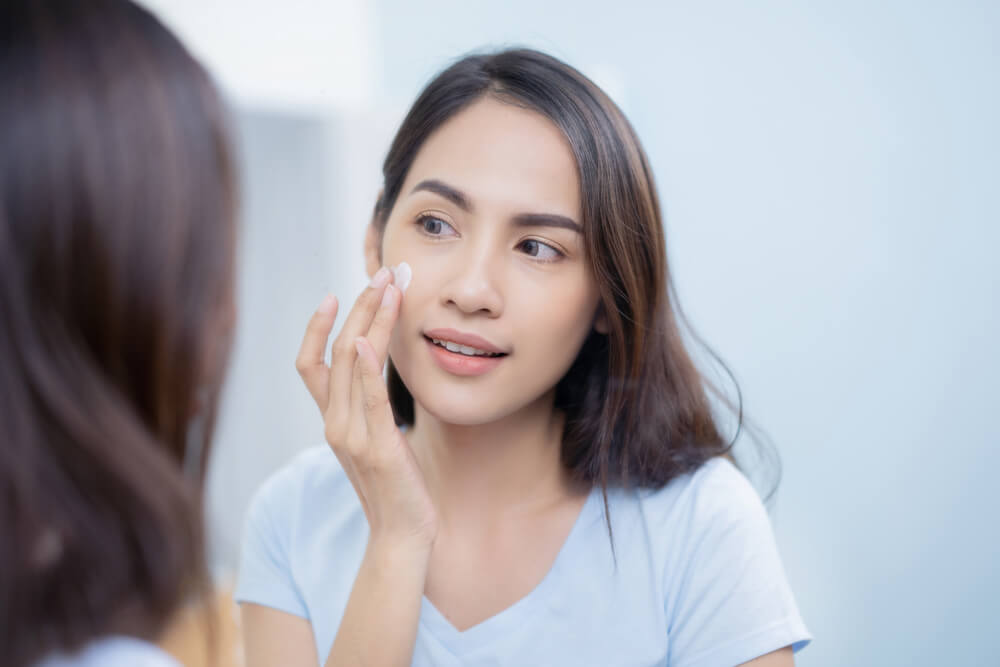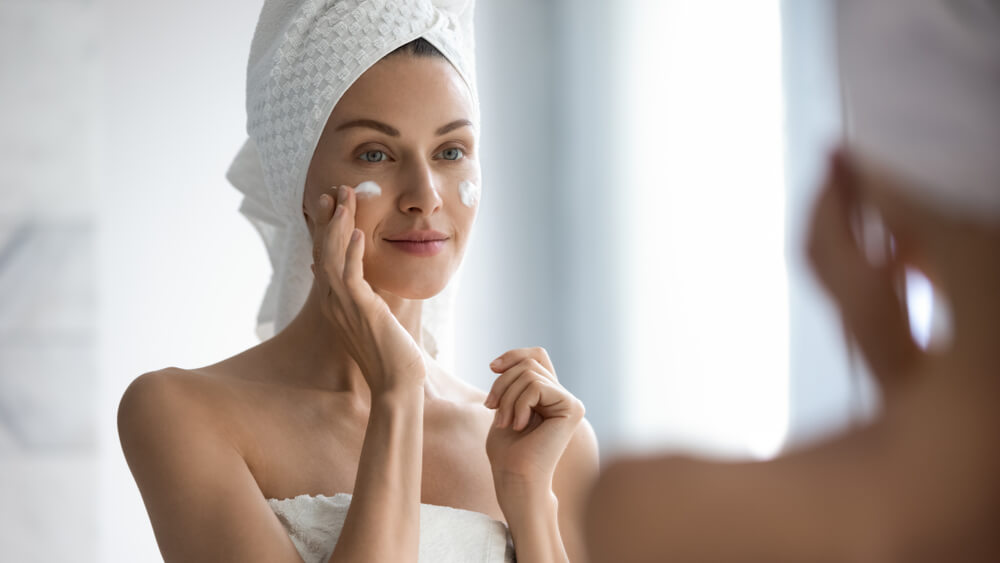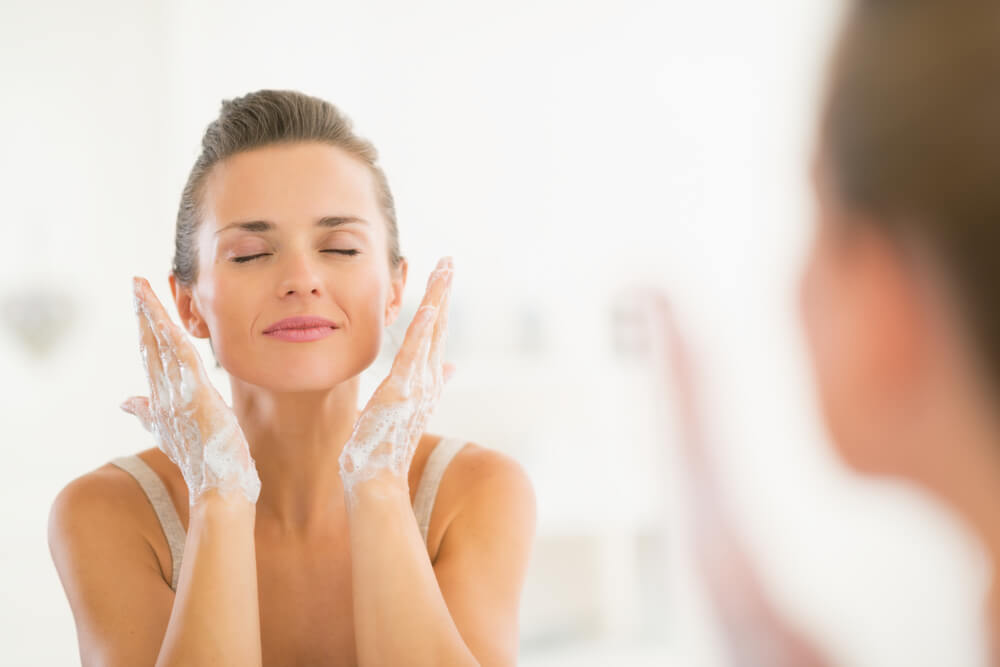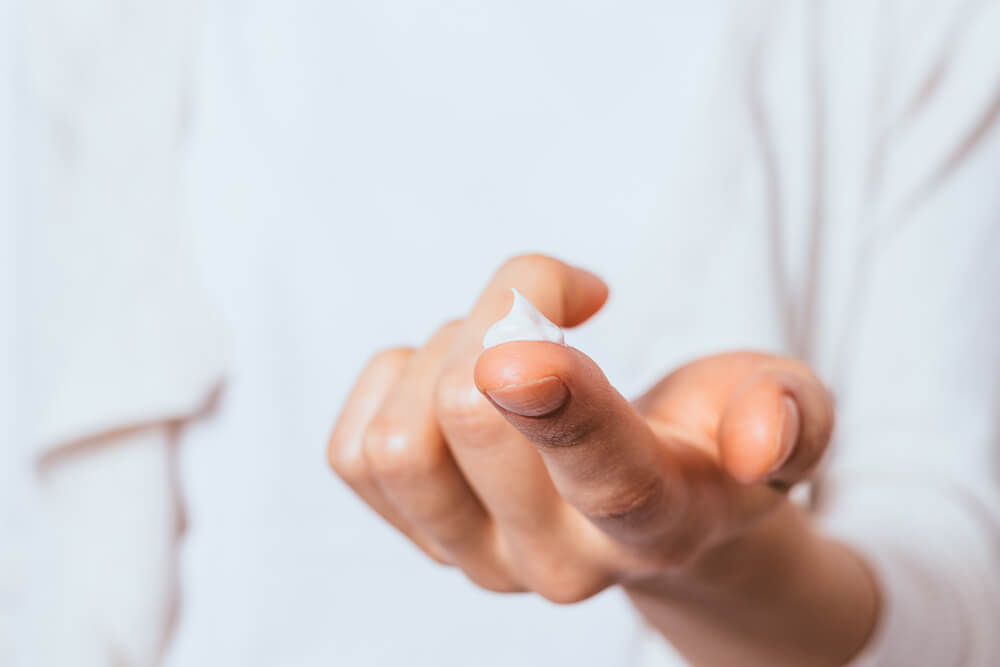Information about skincare abounds. Gone are the days when you absentmindedly grab a product to try from the shelves only to find out it doesn’t work for you. Nowadays, it’s easy to find the lowdown on your favorite brands and how they can benefit your skin. Trial-and-error is not enough anymore — it’s important to be educated about ingredients and formulations before you build (or expand upon) your skincare routine.
What is a Skintellectual?

Here at Lavelier, we define a skintellectual as someone informed about the science of skincare. Skintellectuals are knowledgeable about skincare ingredients and how they can benefit the skin. They keep an open mind about innovations in skincare but trust scientifically proven ingredients.
It doesn’t mean you need to buy all new products, use all the actives, or have a 10-step skincare routine. It means being conscious about the products you do choose to use and how they work with your skin.
If you agree with most (or all!) of the points below, you’re a skintellectual.
Here are 13 signs that you’re a skintellectual:
You Know How to Use Vitamin C
You know that vitamin C is one of the most trusted ingredients when it comes to brightening the look of the skin. You’ve done your research on this potent antioxidant and know its abilities to fade the look of hyperpigmentation and reduce the appearance of wrinkles.
You know that the best way to give your skin a dose of vitamin C is through a good serum, and you know what ingredients to look out for. If you’re still learning, you’ll find everything that you need in the Lavelier Nourishing Vitamin C Serum.
You know that ascorbic acid is the most potent form of topical vitamin C, but also the most finicky, which is why it needs to be packaged in an opaque or dark container. You sometimes place your vitamin C product in the fridge to prevent oxidation—the worst thing that can happen to vitamin C.
You Know Your Way Around Retinoids

If you’re a skintellectual, you probably use a retinoid in your routine or plan to use one soon. You know that retinoids are a powerhouse when it comes to renewing the look of the skin.
Retinoids, which include over-the-counter variants such as retinol, are a derivative of vitamin A — an essential ingredient in skincare. Retinol really is a powerhouse when formulated into a product, which you can see for yourself if you try the retinol-infused HydroTherm Completion Creme from Lavelier. It’s also packed with an array of botanical extracts to complement and support the work that the retinol does.
As a skintellectual, you know that retinoids have one major caveat: they’re extremely potent, which means if used incorrectly, they can overwhelm your skin. This is why you always introduce your retinoids slowly until your skin gets used to them. You know that if you don’t, your skin could end up feeling irritated, dehydrated, and flaky—and no one wants that.
You Use Sunscreen Everyday
One of the first things you heard when you got into skincare is that a basic routine should consist of a cleanser, a moisturizer, and sunscreen. Hopefully, as your routine grew, you’ve kept sunscreen in rotation. If you’re currently in-between sunscreens, look into Lavelier’s Divine Day Defense SPF 30.
Not only does sunscreen protect your skin from burns and help prevent skin cancer, but it also slows down the visible effects of premature aging. Exposure to the sun’s rays causes the appearance of hyperpigmentation and leads to more visible fine lines and wrinkles.
You know that the best kind of sunscreen is the one that you’re most likely to use, so you take your pick between either chemical or physical sunscreens. Physical sunscreens like zinc oxide and titanium oxide sit on top of the skin to deflect UV rays. Chemical sunscreens are absorbed by the skin and convert UV rays to heat, which is then released from the skin. Some of the most cosmetically elegant formulas use a combination of physical and chemical filters.
You use your sunscreen every day (rain or shine!) and know that the UV rays that cause premature aging penetrate windows, so you keep yourself protected even when you’re indoors.
You Know Which Ingredients Work for You
Whether you’re dedicated to more popular active ingredients such as vitamin C, niacinamide, or retinoids, or see effects with underrated ingredients such as sulfur or azelaic acid, you’re done your research on active ingredients and know which ones work best for your skin type.
You’ve heard about the benefits of ingredients such as snail mucin, Centella Asiatica, and propolis. You keep your eye on up-and-coming ingredients such as mugwort, seaweed, and succinic acid. You also follow the Lavelier blog, so that you’re in the loop when it comes to the latest research on must-have skincare ingredients.
You Know the Difference Between Acids

As a skintellectual, you’re not scared of acids. You probably first learned the difference between acids when you dove deeper into the world of skincare. You know that AHAs, or alpha hydroxy acids, exfoliate dead skin cells on the surface of the skin to reveal smoother-looking skin underneath. BHAs, or beta hydroxy acids, on the other hand, are oil-soluble and can penetrate the pores to exfoliate deeply.
You know which acid works best for your skin and always introduce a new acid slowly in order for your skin to acclimate. You take your time with acids and know that, if used incorrectly, they can damage your skin’s moisture barrier, leading to irritated, dehydrated, and flaky skin.
You know that higher percentages don’t always mean they’ll work better on your skin and that overdoing it with acids can do more harm than good. You’re careful not to over-exfoliate your skin and always follow up with a trusted moisturizer and sunscreen.
You Know What to Do When Your Skin Goes Haywire
Sometimes, your knowledge about ingredients can make you get a little overexcited with your actives, causing your skin to act up. You know that when your skin is angry, it’s best to dial down your routine and go back to the basics: cleanser, moisturizer, and sunscreen. This gives your skin a break until it’s back to normal.
Most importantly, you know how to listen to your skin. If it needs more hydration, you add a hydrating layer, like a serum or a sheet mask. If it’s dry, you use a thicker moisturizer. You’re familiar with how your skin responds and know how to treat it in turn.
You Know That the Cleansing Step Matters

You don’t just grab any old cleanser off the shelf— skintellectuals know that their skin is happiest with a gentle, low-pH cleanser formulated without sulfates. You know that you can’t help your skin when you’re stripping it of all its moisture, so you’re careful to choose a cleanser that hydrates while it cleanses, such as the Biology Mousse Cleanser from Lavelier.
When you wear makeup or waterproof sunscreen, you know that the most effective way to cleanse your face is by double cleansing, or using one product to remove your makeup, and another to actually cleanse your skin. You reach for micellar water, cleansing oil, or cleansing balm for your first step before going in with your gentle cleanser. You know that squeaky clean skin is often a bad sign, so you pay attention to how your skin feels after washing it.
You Know How Important Moisturizing is
You probably have an array of different hydration and moisturizers in rotation. Depending on how your skin feels, you may opt for a light gel or gel-cream or a heavier oil-based moisturizer. You know that moisturizer forms the backbone of every good routine, and that moisturizing is necessary when you use any actives, such as retinoids or vitamin C.
You know the difference between dry and dehydrated skin—dry skin lacks oil, while dehydrated skin lacks water.
You know that you often have to layer skincare to keep it moisturized, especially if your skin is finicky or if the weather is harsh. You need a mix of humectants, emollients, and occlusives to both hydrate the skin and lock in moisture.
You know that even oily skin needs moisturizer, and that skin can often overproduce oil when it’s overly dehydrated to compensate for the lack of moisture. Lighter moisturizers such as gels or gel creams should do the trick for those with oily skin or for those who live in humid climates. For those with drier skin, a heavier, more emollient moisturizer is better.
You Know That Packaging Matters
And not for aesthetic reasons. You pay attention to how your skincare products are packaged. You know that actives such as vitamin C or retinoids should come in dark or opaque colored packages because exposure to light degrades the active ingredients.
You also know that products packaged in jars are more likely to be contaminated. When given a choice, you opt for products in pumps, tubes, or bottles with droppers. This means the product stays fresher for longer.
You’re Not Afraid of Preservatives

You know how important preservatives are when it comes to keeping your products fresh and free from microorganisms. Preservatives ensure a product is safe to use for its entire shelf life. They give you the peace of mind that you’re not using a contaminated product that can lead to irritation or even infection.
You Pay Attention to pH
When it comes to cleansers, you look for products that won’t disrupt the skin’s acid mantle—meaning a pH of around 5.5 to 6. Exfoliating acids like AHAs and BHAs need to be at a much lower pH to work on the skin. They are usually formulated around a pH of 3 to 4 to be effective on the skin. Ascorbic acid works at an even lower pH: often around a pH of 3.
Other ingredients usually work at a neutral pH, so you don’t have to worry about the pH of your moisturizer, serum, or sunscreen.
You’re Realistic About Your Expectations
You know that long-lasting results don’t happen overnight: it can take weeks for actives such as acids and vitamin C to make a noticeable difference in your skin, or even months for retinoids. You know how important it is to stay diligent with your skincare routine and you’re patient about seeing results. You might not see an immediate difference from wearing sunscreen every day, for example, but your skin will thank you in the future.
You Know That There’s No Such Thing as a Perfect Routine
You know that the routine that works for you won’t work for everyone. You also know that factors such as the weather and hormones will affect what skincare products you use, so your own routine might look different throughout the year.
Skincare is deeply personal and changes from person to person. You know it can take some time to find a routine that works for you. Knowledge about ingredients matters, but so does formulation, so what looks good on paper might not agree with your skin—even if it contains all your go-to ingredients.
Whether you have a minimalist routine or love to layer different skincare products, you know your routine is unique to you and your skin.




0 comments on “Are You a Skintellectual?”